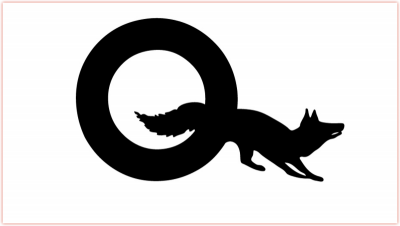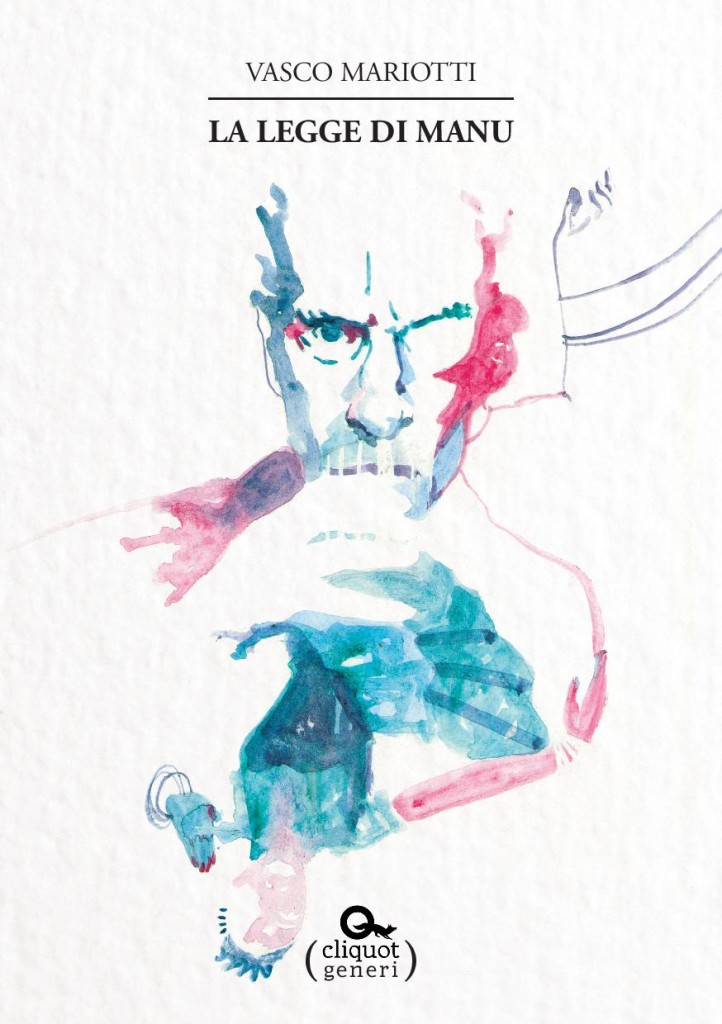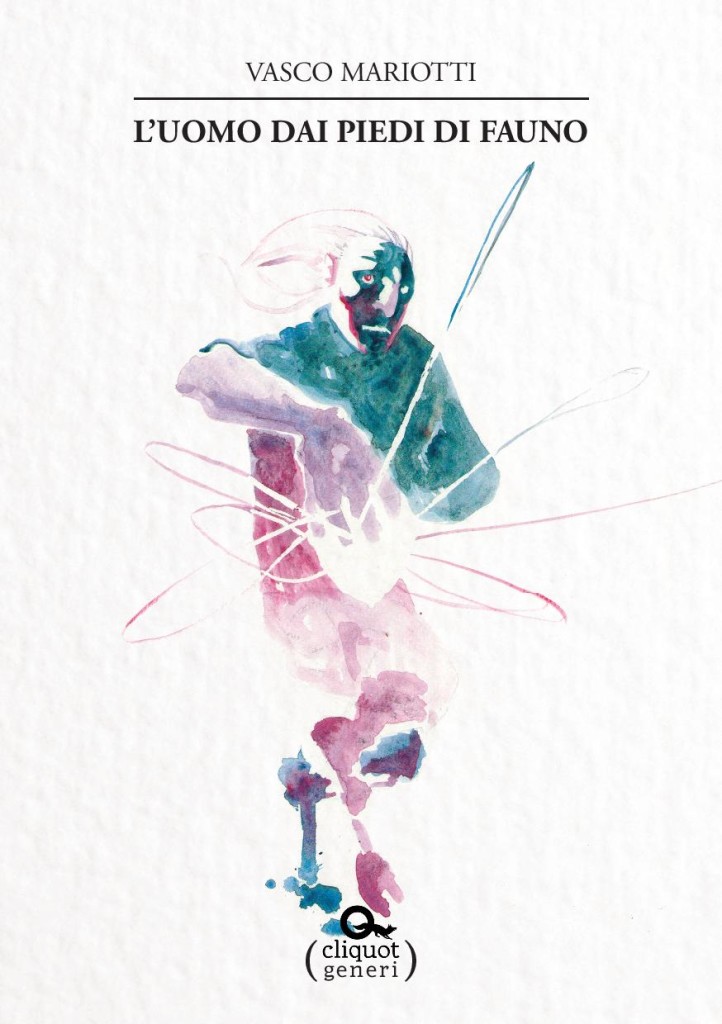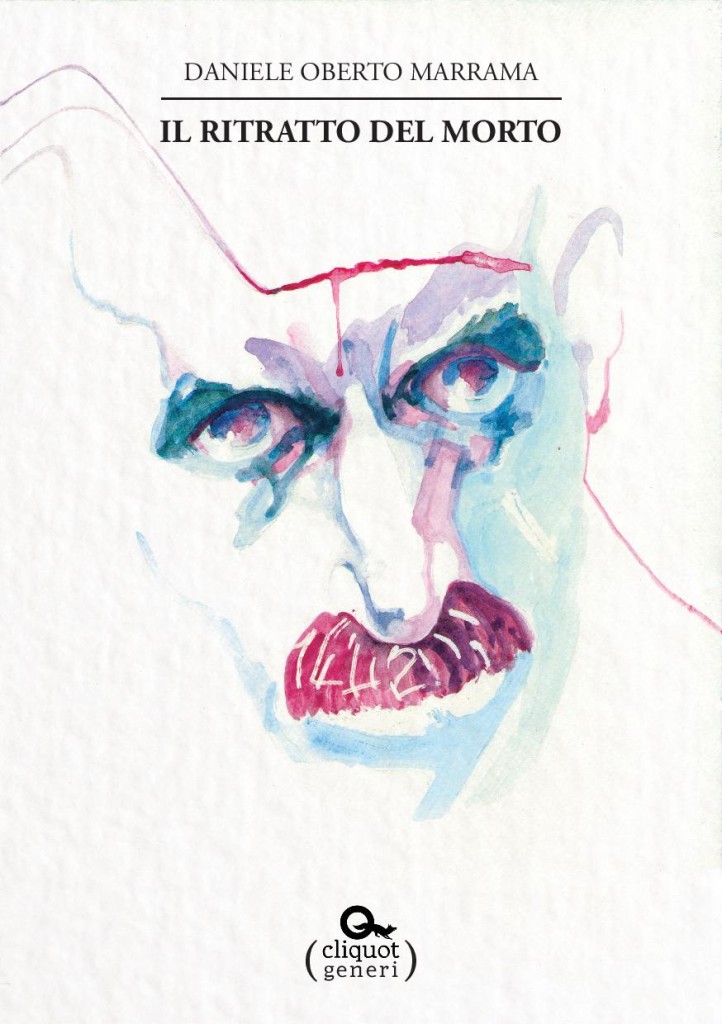Immaginate una soffitta polverosa, una cassaforte in una banca svizzera, un volumone appoggiato su un banchetto di un rigattiere. Immaginate tre ragazzi, Alessia Ciuffreda, Lorenza Starace e Federico Cenci, che cercando, rovistando, semplicemente buttando lo sguardo, notano un libro. Magari la copertina è sbiadita, le pagine macchiate dal caffè lasciato sgocciolare da qualcuno ma, caspita, è proprio un bel libro! Ecco, immaginateveli con l’impermeabile e la lente di ingrandimento che girano il mondo a scovare volumi dimenticati. E poi? Poi gli danno una bella spolverata e li pubblicano.
Benvenuti nel mondo di Cliquot.
Partiamo dal principio: siete tre giovani appassionati di libri, ognuno con una formazione diversa. Come vi siete incontrati e da dove è nata l’idea di fondare Cliquot?
Due di noi si conoscevano già da tempo, ma l’incontro che ha fatto scoccare la scintilla è avvenuto con la partecipazione al Corso principe per redattori editoriali organizzato a Roma da Oblique Studio, che ci ha fornito gli strumenti per affrontare con maggior cognizione di causa il lavoro editoriale. Tutti e tre, nonostante età e formazioni diverse, cullavamo da tempo l’idea di dedicarci a un progetto originale e indipendente, e dopo il corso abbiamo capito che era tempo di farlo. Alla triade iniziale di Cliquot si sono poi aggiunte le preziose collaborazioni di Riccardo Fabiani, il nostro illustratore, che ha creato con grande arte e sensibilità il logo e l’aspetto grafico, e di Paolo Valoppi, che dà una valente mano al nostro ufficio stampa nel compito delicato di diffondere il progetto.
Spiegateci qual è il vostro scopo, gli obiettivi che vi siete prefissati.
Non vogliamo seguire ciecamente il flusso del mercato accodandoci a una produzione standardizzata (che per una piccola realtà si tradurrebbe inevitabilmente nel raccogliere le briciole lasciate dai grossi gruppi editoriali), ma proporre ai lettori la nostra idea di letteratura; vogliamo rimettere in discussione la scala di valori che l’editoria del Novecento ha come scolpito sulla roccia per via dei limiti del supporto cartaceo. Come diciamo nel nostro manifesto, la storia della letteratura è fatta anche di grandi classici mancati, di creazioni trascurate per la difficile reperibilità, per la disattenzione degli editori maggiori o per una sensibilità culturale mutata nel tempo.
E quindi perché andare a scavare proprio in quella nicchia di mercato rimasta a lungo sepolta, per donarle nuova vita?
Cliquot prenderà in grande considerazione la letteratura popolare, soprattutto per una questione di efficacia letteraria che riteniamo superiore nel digitale rispetto al cartaceo. Ma si tratta anche di un’operazione culturale. In tutti i paesi con una lunga tradizione nella narrativa di genere, da tempo si è creata una mitizzazione di un mondo letterario fatto di riviste, feuilleton, collane (pensa soltanto agli Stati Uniti e ai pulp magazine storici come Weird Tales e Astoundig Science Fiction) che hanno avuto e continuano ad avere un grandissimo impatto sulla circolazione delle idee, una valenza culturale notevole. In Italia, la distinzione spesso aprioristica e ingiusta fra letteratura alta e bassa ha portato all’oblio molti autori che invece meriterebbero non solo di essere ricordati, ma anche di essere letti e studiati.
Parliamo proprio di questo. Quali sono i vostri autori, dove li trovate, come li conoscete?
Sulla fase di scouting riversiamo molte delle nostre energie. Per questo nella narrativa straniera ci indirizziamo (per ora) soltanto verso le opere anglofone, ispanofone e francofone, nelle tre lingue, cioè, di cui abbiamo padronanza: in modo tale da poter valutare con cognizione di causa la validità letteraria dei libri potenzialmente traducibili e pubblicabili.
Anche la ricerca di autori italiani richiede una notevole dose di lavoro. Per quella disattenzione culturale di cui parlavamo prima, di molti non si conoscono neppure le informazioni biografiche di base, come data di nascita o di morte, figurarsi riuscire a contattare un erede. Per questo abbiamo anche pensato che quando, molto presto, apriremo un blog per entrare in contatto diretto con i nostri lettori, una delle cose che faremo sarà appellarci proprio a chi ci segue per reperire informazioni su certi autori che vorremmo pubblicare ma di cui non riusciamo a scoprire alcuna informazione.
L’aspetto positivo è che quando finalmente pubblichiamo un autore dimenticato o quasi, come sta accadendo per i nostri due primi autori italiani Vasco Mariotti e Daniele Oberto Marrama, non solo diffondiamo la loro opera, ma in un certo senso ridiamo vita anche a loro stessi, cercando di ricostruirne la biografia, o pubblicando i manoscritti o dattiloscritti inediti che sono rimasti nelle soffitte degli eredi.
Perché decidere di trasformare questi manoscritti direttamente in ebook? Credete che questo sistema di lettura sia il futuro dell’editoria?
I due mezzi hanno potenzialità diverse, viaggiano su binari paralleli, sono diversi il messaggio, l’esperienza sensoriale, le possibilità di fruizione. La nuova editoria deve saperlo e sfruttarlo. Siamo ben coscienti che, soprattutto nel nostro paese, da parte di molti c’è ancora una forte resistenza nei confronti dell’ebook. Ma se superiamo la contrapposizione, capiamo che avere un ereader non significa smettere di comprare libri di carta, o buttare quelli che già si hanno. È semplicemente una diversa esperienza di lettura che non può che arricchirci come lettori e come persone. Insomma, per rispondere alla domanda: sì, pensiamo che l’ebook sia il futuro dell’editoria, ma con questo non vogliamo sottintendere che il cartaceo sia il passato; pensiamo solo che, man mano che l’ebook si svilupperà, il cartaceo dovrà probabilmente un po’ rimodellarsi alle nuove forme e necessità.
La vostra casa editrice ha creato tre collane differenti: raccontateci in cosa si differenziano.
La collana Biblioteca è la nostra nave ammiraglia. È il contenitore più ampio perché non prevede distinzione fra mainstream e letteratura di genere, fra romanzi e saggi: la sfida è quella di pubblicare testi del passato evocativi e stimolanti che trovino nell’ebook una nuova e più piena espressione. Il primo numero della collana, in uscita questo 26 marzo, sarà dedicato a un grande maestro della letteratura fantastica, l’americano Fritz Leiber, con l’antologia La cosa marrone chiaro e altre storie dell’orrore, una raccolta di racconti ancora inediti in Italia che ripercorrono la sua carriera artistica. A breve distanza usciranno anche Il cavaliere con gli stivali azzurri della scrittrice e poetessa spagnola Rosalía De Castro, un suggestivo romanzo fantastico dai toni un po’ hoffmanniani che, emblematicamente, racconta di un bizzarro personaggio che vuole salvare la letteratura, e L’uomo che diventò donna di Sherwood Anderson, padre del racconto d’ambiente americano: un’antologia di racconti che secondo noi non ha nulla da invidiare al suo ben più noto Winesburg, Ohio.
La collana Generi è quella dedicata più specificamente alla narrativa popolare di genere (di tutti i generi) e punta non solo alla riscoperta di belle storie da leggere ma anche degli autori che le hanno scritte. Sono già disponibili due libri di Vasco Mariotti, un Giallo Mondadori degli anni Trenta dal titolo L’uomo dai piedi di fauno e un giallo inedito degli anni Cinquanta, La legge di Manu, riscoperto e pubblicato per la prima volta da Cliquot. Il terzo libro della collana, anch’esso già disponibile, è Il ritratto del morto, una tanto rara quanto suggestiva raccolta di racconti bizzarri di inizio Novecento di Daniele Oberto Marrama, giornalista e collaboratore di Matilde Serao.
La terza collana si chiama invece Segni, e trasferisce tutti gli interessi di Cliquot al mondo del fumetto. La collana è sperimentale perché propone accanto all’ebook la pubblicazione in cartaceo attraverso la raccolta fondi tramite crowdfunding dato che secondo noi, per sua natura, il linguaggio fumetto vive soprattutto sulla carta stampata. La prima raccolta fondi, che partirà a fine aprile, è dedicata a un volume che raccoglie le migliori storie di Pinocchio nella versione di Alberico Motta e Sandro Dossi pubblicate negli anni Settanta dall’”Editoriale Metro” di Renato Bianconi (gli stessi autori di Geppo e Braccio di Ferro).
Cosa vi ha spinto a investire in un settore come quello dell’editoria?
Semplicemente, il nostro percorso ci ha portati qui e questo è ciò che vogliamo e dobbiamo fare oggi. In nessun settore l’investimento, se non è alimentato da un lavoro sul campo in prima persona, può più portare buoni frutti. E in linea di principio siamo più interessati allo stare bene qui e ora che non a pianificare investimenti per il futuro, o almeno abbiamo una prospettiva di noi nel futuro che è molto più umana che non economica.
Cosa pensate che diversifichi la vostra casa editrice rispetto alle altre, sia neonate, sia già affermate?
C’è la diffusa sensazione che il mercato dell’ebook sia stato invaso da molti editori improvvisati: da chi pensa che, poiché l’investimento è basso i contenuti “fuori diritti” liberamente accessibili, la filiera produttiva più semplice da gestire che non nel cartaceo, sia un gioco da ragazzi diventare editori digitali. In realtà le cose stanno molto diversamente. Il problema è che questo approccio porta a un abbassamento generale della qualità dell’editoria digitale e di riflesso contribuisce a mantenere i pregiudizi, soprattutto nei confronti delle nuove realtà editoriali soltanto digitali, da parte dei lettori più affezionati al cartaceo.
Veniamo invece a chi i vostri ebook poi li dovrà comprare: i lettori. A chi vi rivolgete?
La risposta facile sarebbe: “Al lettore intelligente, che sa distinguere un prodotto di qualità”, perché così comprenderemmo tutti! La risposta vera è che, invece, non pensiamo di poter dividere il lettore per “tipo”. Quello che speriamo è che molti lettori siano incuriositi e provino a leggere uno dei nostri libri almeno una volta: se saremo stati in grado di stabilire un legame, una connessione con lei o lui che invogli ad approfondire la conoscenza, allora saremo contenti. Fra poco, come abbiamo detto, apriremo anche un blog, e stiamo pensando anche ad altre forme di contatto diretto con i lettori: perché quello che vogliamo non è creare un rapporto fra venditore e acquirente, fra produttore e consumatore. Quello che vogliamo è crescere insieme.
C’è un consiglio che volete dare a qualche giovane come voi che è ancora incerto se investire o no in un sogno?
Ragazzi, dovete saperlo dentro di voi. Se siete preparati e la vocina è davvero insistente, allora buttatevi. “Come fai a sapere quello che vuoi fare finché non lo fai?” dice il giovane Holden, verso la fine del libro.
[divider]ENGLISH VERSION[/divider]
Imagine a dusty attic, a safe in a Swiss bank, a big volume endorsed on the stand of a junkyard. Imagine three guys, Alessia Ciuffreda, Lorenza Starace and Federico Cenci noticing a book, by looking for it, searching or simply glancing at it. Maybe the sleeve is faded and the pages are stained with some coffee that someone dropped, but it is really a great book! So, imagine them with a raincoat and a hand lens travelling the world to discover forgotten volumes. And then? They give them a dust and they publish them.
Welcome to Cliquot.
Let’s start from the very beginning: you are three guys keen on books, each one with a different education. How did you meet? Where did the idea of founding Cliquot come from?
Two of us already knew each other from a long time, but the most important meeting took place with the participation to a course for editorial authors organized by Oblique Studio which provided us the instruments to face up to the editorial work with more awareness. In spite of our different education, we all cherished the idea of devoting us to an original and independent project and after that course we understood it was the time to do it. To the initial triad of Cliquot we added the precious collaboration of Riccardo Fabiani, who made the logo and the graphic part with a great art and sensibility and of Paolo Valoppi, who gives a helping hand to our press office in the delicate job of spreading our project.
Explain us what is your purpose and the aims you have predetermined.
We don’t want to follow blindly the trade by following a standardize production (which for a small entity would necessarily mean to pick up the scraps left by the large editorial groups) but to propose to our readers our idea of literature. We want to call into question the values that the publishing industry of the Twentieth Century took as fundamental because of the limit of the paper. As we explain in our manifesto, the history of literature is made even by great missed classical, of creations ignored because of their lacking availability, for the carelessness of greater publishers or for a cultural sensitivity which changed in time.
So why you dig up into that market niche which remained buried for a long time, to give it a new life?
Cliquot will take into account popular literature, especially for a reason of literally effectiveness that we consider more important in a digital format rather than in a paper one. But it is even a cultural operation. In all countries with a long-lasting tradition for the genre fiction we can see a mythicization of the literally world made of magazine, feuilleton, collections (just think of the US and to the memorable pulp magazines as Weird Tales and Astounding Science Fiction) which had and still have a remarkable cultural values and a great effect on circulation of ideas. In Italy the a priori and unfair distinction between “high” and “low” literature led many authors to sink into oblivion, instead of being not just remembered but also read and studied.
Let’s talk about this. Who are your authors? Where do you find them? How do you know them?
We devote many of our energies to the phase of scouting. This is the reason why for what about foreign literature we search only between English, Spanish and French works, mainly in the three languages we know, so that we can evaluate with awareness the literal effectiveness of the books which are potentially to be translated and published. Even the search for Italian writers needs a remarkable work. Talking about that cultural carelessness, we don’t even know the basic biographical facts of many of them as the date of their birth or of their dead. So you can imagine how difficult can be for example to get in touch with an heir. That’s the reason why we thought that when we will open a blog, we would appeal to them to trace information on some authors we would like to publish but about which we cannot learn anything. The best thing is that when we finally publish a forgotten writer, as what is happening for our two first Italian authors Vasco Mariotti and Daniele Oberto Marrama, we do not just spread their works, we also give them a new life trying to reconstruct their biography, or publishing their manuscript or their unpublished typewritten documents which remained in the attics of their heirs.
Why do you decide to publish these manuscripts in eBooks? Do you think that this system of reading is the future of the publishing industry?
This two means has different potentialities, they travel on parallel paths; the message, the sensorial experience and the possibility of use are different. The new publishing industry has to know it and has to understand how to take advantage of it. We know that, especially in our country, there is still a strong resistance towards the eBook. But if we go beyond this contrast we understand that to have an e-reader doesn’t mean to stop buying paper books or to throw away those you already have. This is just a different experience of reading which can only enrich us as readers and as people. So, to answer to question: yes, we think that the eBook is the future of the publishing industry, but we don’t want to imply that paper is the past. We just think that as the eBook will grow, the paper will probably have to remodel to new shapes and needs.
Your publishing house made three different collections: tell us in what do they differ.
The collection “Biblioteca” is our mother ship. It is the widest container because it does not consider a distinction between the mainstream and the genre fiction, between novels and essays. The challenge is to publish evocative and stimulating texts from the past that may find in the eBook a new and full expression. The first number of the collection, which will be published on March 26th, will be dedicated to a master of fantasy literature, the American Fritz Leiber with the anthology “The Pale Brown Thing”, a collection of short stories still unreleased in Italy that retrace his artistic career. Nearby will be also realised “Il cavaliere con gli stivali azzurri” by the Spanish writer and poet Rosalía De Castro, an evocative fictional novel with a little of the Hoffmann’s style, which emblematically tells of a bizarre character who wants to save the literature and “Horses and men” by the American writer Sherwood Anderson. The collection “Generi” is dedicated specifically to the genre fiction (of every genre) and it aims not only to the discovery of nice stories to read but also to the discovery of writers who wrote them. Two books by Vasco Mariotti are already available: a Giallo Mondadori from the Thirties entitled L’uomo dai piedi di fauno and a detective story unreleased from the Fifties, La legge di Manu, discovered and published for the first time by Cliquot. The third book of the collection, which is already available too, is called Il ritratto del morto and it is a rare and suggestive collection of weird stories from the early Twentieth Century by Daniele Oberto Marrama, a journalist and collaborator of Matilde Serao. The third collection is called “Segni” and expresses all the interests of Cliquot for what about the comic world. The collection is experimental because it proposes beside the eBook, the publication in paper by means of gathering of founds through crowdfunding, because we think that, by its nature, comic language lives above all on printed-paper. The first gathering of founds, which will start at the end of April, is dedicated to a volume which will collect all the best stories of Pinocchio in the version by Alberico Motta and Sandro Dossi published in the Seventies by Renato Bianconi’s “Editoriale Metro” (the same authors of “Geppo” and “Braccio di Ferro”)
What pushed you to invest in a sector such as publishing?
Simply, our path brought us here and this is what we want and we have to do today. Nowhere an investment, if it is not powered by a personal work in the field, can bear good fruits. Basically, we are more interested in being right here and right now that in planning investments for the future, or at least we have a prospect of us in the future that is more human than economic.
What makes your publishing house different from the others, both new ones and already established?
There is a widespread feeling that the Ebook market has been flooded with many improvised publishers, like those who think that, because the investment is low and the contents are “out of the rights” and freely accessible, the production chain is easier to manage than in the paper edition; they think it is a cinch to become digital publishers. Actually things are very different. The problem is that this approach leads to a general lowering of the quality of digital publishing and consequently it contributes to maintain the prejudices, especially towards the new digital realities, from readers loyal to the paper edition.
Let’s talk about who is going to buy your e-books: the readers. What is your perfect reader?
The easy answer would be: “A smart reader, the one who recognizes quality in a product”. In this way we would include everybody! However, the real answer is that we don’t think we can identify the “ideal” reader. What we hope is that many readers are curious and try to read one of our books at least once: if we were able to establish a link, a connection with her or him that encourages a deeper understanding, then we will be happy. Soon, as we said, we will open a blog, and we are thinking of other forms of direct contact with the readers. What we want is not to create a relationship between a seller and a buyer, or between a producer and a consumer. What we want is to grow together.
What do you feel to suggest to those young talents, like you, who are still unsure whether to invest in a dream?
Guys, you get inside your heart. If you are talented, and the voice is really insistent, then just do it. “How do you know what you’re going to do ‘till you do it?” says Holden Caufiled, towards the end of the book “The Catcher in the Rye”.
Traduzione a cura di Daniela De Angelis e Chiara Pino




